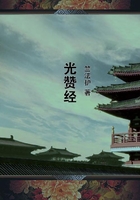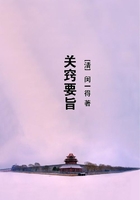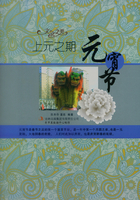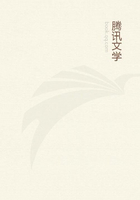THE ZULU IMPI
After burying the elephant tusks, and having taken careful notes of the bearings and peculiarities of the country so that I might be able to find the spot again, we proceeded on our journey. For a month or more I trekked along the line which now divides the Orange Free State from Griqualand West, and the Transvaal from Bechuanaland. The only difficulties met with were such as are still common to African travellers--occasional want of water and troubles about crossing sluits and rivers. I remember that I outspanned on the spot where Kimberley now stands, and had to press on again in a hurry because there was no water. I little dreamed then that I should live to see Kimberley a great city producing millions of pounds worth of diamonds annually, and old Indaba-zimbi's magic cannot have been worth so much after all, or he would have told me.
I found the country almost entirely depopulated. Not very long before Mosilikatze the Lion, Chaka's General had swept across it in his progress towards what is now Matabeleland. His footsteps were evident enough. Time upon time I trekked up to what had evidently been the sites of Kaffir kraals. Now the kraals were ashes and piles of tumbled stones, and strewn about among the rank grass were the bones of hundreds of men, women, and children, all of whom had kissed the Zulu assegai. I remember that in one of these desolate places I found the skull of a child in which a ground-lark had built its nest. It was the twittering of the young birds inside that first called my attention to it. Shortly after this we met with our second great adventure, a much more serious and tragic one than the first.
We were trekking parallel with the Kolong river when a herd of blesbock crossed the track. I fired at one of them and hit it behind.
It galloped about a hundred yards with the rest of the herd, then lay down. As we were in want of meat, not having met with any game for a few days past, I jumped on to my horse, and, telling Indaba-zimbi that I would overtake the waggons or meet them on the further side of a rise about an hour's trek away, I started after the wounded buck. As soon as I came within a hundred yards of it, however, it jumped up and ran away as fast as though it were untouched, only to lie down again at a distance. I followed, thinking that strength would soon fail it.
This happened three times. On the third occasion it vanished behind a ridge, and, though by now I was out of both temper and patience, Ithought I might as well ride to the crest and see if I could get a shot at it on the further side.
I reached the ridge, which was strewn with stones, looked over it, and saw--a Zulu Impi!
I rubbed my eyes and looked again. Yes, there was no doubt of it. They were halted about a thousand yards away, by the water; some were lying down, some were cooking at fires, others were stalking about with spears and shields in their hands; there might have been two thousand or more of them in all. While I was wondering--and that with no little uneasiness--what on earth they could be doing there, suddenly I heard a wild cry to the right and left of me. I glanced first one way, then the other. From either side a great Zulu was bearing down on me, their broad stabbing assegais aloft, and black shields in their left hands.
The man to the right was about fifteen yards away, he to the left was not more than ten. On they came, their fierce eyes almost starting out of their heads, and I felt, with a cold thrill of fear, that in another three seconds those broad "bangwans" might be buried in my vitals. On such occasions we act, I suppose, more from instinct than from anything else--there is no time for thought. At any rate, Idropped the reins and, raising my gun, fired point blank at the left-hand man. The bullet struck him in the middle of his shield, pierced it, and passed through him, and over he rolled upon the veldt. I swung round in the saddle; most happily my horse was accustomed to standing still when I fired from his back, also he was so surprised that he did not know which way to shy. The other savage was almost on me; his outstretched shield reached the muzzle of my gun as I pulled the trigger of the left barrel. It exploded, the warrior sprung high into the air, and fell against my horse dead, his spear passing just in front of my face.
Without waiting to reload, or even to look if the main body of the Zulus had seen the death of their two scouts, I turned my horse and drove my heels into his sides. As soon as I was down the slope of the rise I pulled a little to the right in order to intercept the waggons before the Zulus saw them. I had not gone three hundred yards in this new direction when, to my utter astonishment, I struck a trail marked with waggon-wheels and the hoofs of oxen. Of waggons there must have been at least eight, and several hundred cattle. Moreover, they had passed within twelve hours; I could tell that by the spoor. Then Iunderstood; the Impi was following the track of the waggons, which, in all probability, belonged to a party of emigrant Boers.
The spoor of the waggons ran in the direction I wished to go, so Ifollowed it. About a mile further on I came to the crest of a rise, and there, about five furlongs away, I saw the waggons drawn up in a rough laager upon the banks of the river. There, too, were my own waggons trekking down the slope towards them.
In another five minutes I was there. The Boers--for Boers they were--were standing about outside the little laager watching the approach of my two waggons. I called to them, and they turned and saw me. The very first man my eyes fell on was a Boer named Hans Botha, whom I had known well years ago in the Cape. He was not a bad specimen of his class, but a very restless person, with a great objection to authority, or, as he expressed it, "a love of freedom." He had joined a party of the emigrant Boers some years before, but, as I learned presently, had quarrelled with its leader, and was now trekking away into the wilderness to found a little colony of his own. Poor fellow!
It was his last trek.

